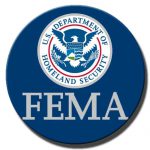
FEMA Farmers Recovery Centers
On Wednesday, Oct. 11, from 9 a.m. to noon, a Farmers Recovery Center will be open at the Dixie County Public Library at 16328 SE US-19 in Cross City.

On Wednesday, Oct. 11, from 9 a.m. to noon, a Farmers Recovery Center will be open at the Dixie County Public Library at 16328 SE US-19 in Cross City.
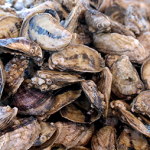
The USDA Risk Management Agency (RMA) announced that oyster producers are now eligible for protection against losses due to named storms, excessive heat during a low tide event, freeze during a low tide event, or low salinity due to excessive rainfall. The new Shellfish Crop Insurance Pilot Program is an actual production history-price component (APH-PC) coverage policy for container-grown oysters commercially cultivated for the fresh half shell market. This new program will be available beginning with the 2024 crop year, and producers have until November 30 to purchase this policy. For the APH-PC coverage policy, the producer selects the percentage
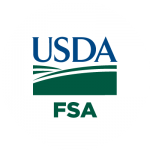
The Noninsured Crop Disaster Assistance Program (NAP) and Emergency Assistance for Livestock, Honeybees and Farm-raised Fish Program (ELAP) can provide shellfish growers with catastrophic coverage for losses due to natural disasters. The deadline to sign-up for these programs and provide an acreage report is September 30 for coverage of crop year 2024. Since this date falls on a weekend, the deadline is extended to October 2. Both programs are serviced by your local USDA Farm Service Agency (FSA) office. To find your county office, go to https://www.fsa.usda.gov/state-offices/Florida/index. See fact sheets for NAP and ELAP for more information. For NAP, clam growers are required
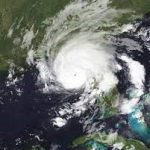
Hurricane Idalia made landfall in the Big Bend region of Florida’s Gulf Coast as a Category 3 storm on August 30, 2023. According to the National Hurricane Center, Idalia brought a storm surge as high as 16 feet and severe winds. Florida’s shellfish growers in Levy and Dixie Counties. What is uncertain is if shellfish growers will be eligible for EQIP to assist in removing obstacles from their leases and restoring submerged lands to pre-storm conditions. We are currently working with the NRCS program leader to determine edibility. The application sign-up deadline is November 17, 2023. USDA FSA Meeting for
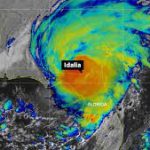
The purpose of this study is to rapidly estimate the aquacultural and agricultural impacts resulting from Hurricane Idalia. Survey results will be combined with a detailed baseline database on assets in Florida to estimate and communicate production losses in support of informed local, state, and federal decision-making processes related to disaster declaration, response, and relief. More specifically, survey responses and subsequent analyses provide data and insights to industry associations, government agencies, policy makers, and emergency personnel. The disaster assessment survey requests the general location of the operation, commodity-specific details including total acreage, affected acreage, and estimated production losses. In addition,
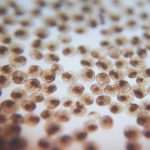
Hosted by University of Florida/IFAS FAU Harbor Branch Oceanographic Institute UF/IFAS and FAU Harbor Branch, along with industry partners, have been engaged in a two-year monitoring and assessment project evaluating a broad range of factors in clam seed production facilities. These workshops will share findings focused on better understanding and alleviating seed mortality. Workshop topics to be covered include: Water quality parameters Bacteria and seed health concerns Nursery phytoplankton overview Useful tools for hatchery and nursery operators FDACS Gulf Coast Shellfish Nursery & Hatchery Grant Program Participate in-person or virtually July 25, 2023 I 2:00 – 4:00 pm University of
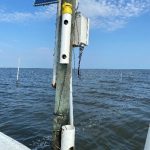
The water quality monitoring station at the Gulf Jackson Aquaculture Use Zone (AUZ) in Cedar Key is up and running! Along with the Dog Island AUZ station, real-time information on water temperature, salinity, dissolved oxygen and pH is available for these leases and can be viewed at the Online Resource Guide for Florida Shellfish Aquaculture website by visiting the LIVE Water Quality pages. History of Stations In 2002-3, monitoring equipment was originally installed at these lease areas and seven others in Florida with USDA funding. However, lack of continued funding resulted in most stations being dismantled ten years later. Since
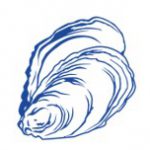
In 2023, a network of growers was formed across the state to increase oyster mortality monitoring efforts and provide replication and environmental gradients. Growers received equipment, sampling supplies, and guidance so water quality, oyster performance, and health information could be obtained. Water Quality Commercial farms located in eight Shellfish Harvesting Areas (SHAs) were identified to monitor salinity and temperature. In-situ Aquatroll 100 dataloggers were deployed inside oyster bags and collect data hourly. Grower operators maintain loggers and download data via Bluetooth to a mobile app. Data are sent to UF staff and posted to the website dashboard. Data are not
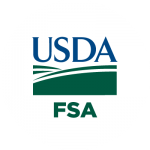
The Pandemic Assistance Revenue Program (PARP) will assist eligible producers of agricultural commodities who experienced revenue decreases in calendar year 2020 compared to 2018 or 2019 due to the COVID-19 pandemic. PARP will help address gaps in previous pandemic assistance, which was targeted at price loss or lack of market access, rather than overall revenue losses. For PARP, eligible agricultural commodities include aquaculture. USDA’s Farm Service Agency will accept PARP applications through June 2, 2023. PARP payments will be made on a whole-farm basis. To be eligible for PARP, a producer must have been in the business of farming during at

According to NOAA Fisheries, more than 80 percent of marine aquaculture production in the United States consists of bivalve mollusks such as oysters, clams and mussels. However, it’s not just humans who enjoy eating these shellfish, so do marine rays. They like to “crunch” on clams, which can sometimes take a big bite out of clammers’ profits. Researchers from Florida Atlantic University’s Harbor Branch Oceanographic Institute in collaboration with Mote Marine Laboratory, assessed the ability of the whitespotted eagle ray to interact with clams housed within a variety anti-predator materials. “Based on our findings, many of the current anti-predator grow-out